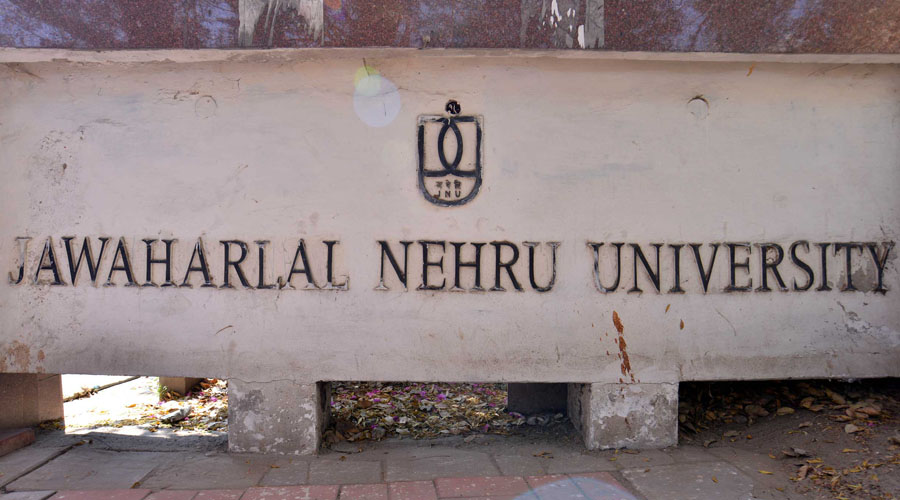President Ram Nath Kovind on Wednesday paid glowing tribute to the legacy of Jawaharlal Nehru University in encouraging free debate and respect for difference of opinion and described JNU as a model of inclusion, diversity and excellence.
The university, which is seen as a Left bastion, has been a favourite punching bag of the Right-wing ecosystem, has hurtled from one controversy to another, been painted as a hub of “anti-national” activities and blamed for the many ills plaguing the country, and its students have been targeted over the past six years of NDA rule.
Addressing the JNU convocation, Kovind, the Visitor, said: “On the campus, students and teachers live in close proximity. This closeness strengthens the bond between them. This closer bond facilitates learning. The excellent faculty of this university has been encouraging free debate and respect for difference in opinions.
“Students are treated as partners in learning, which is how it should be in higher education. The university is known for vibrant discussions, which also take place outside the classrooms, in the cafeterias and dhabas at all hours.”
In 2016, a police force had been sent into JNU and students arrested on the charge of raising “anti-national” slogans. Six students, including then union president Kanhaiya Kumar, were picked up for sedition. Earlier this year, a group of masked men and women entered the campus and attacked students and teachers who were opposed to a proposal for hostel fee hike.
Kovind said JNU had produced many eminent personalities and had been guided by some of the greatest minds. He referred to former President K.R. Narayanan, who had served as vice-chancellor. The President also named finance minister Nirmala Sitharaman and external affairs minister S. Jaishankar among notable alumni.
“From among the over 80,000 former students of JNU, many have been making their impact in India and abroad through contribution in the civil services, academia, politics, social work, science and technology, media and communications, fine arts and business leadership,” Kovind said.
He praised JNU for its national character. Students from all parts of India and from all strata of society study in JNU in an “atmosphere of equal opportunity for excellence”, Kovind pointed out.
“The university represents blending of inclusion, diversity and excellence,” the President added.
He also reflected on diversity at JNU whose hostels are named after famous rivers of India. The President quoted Mahatma Gandhi and Babasaheb Bhimrao Ambedkar to ask the students to work for the people.
“It is your sacred duty to repay this debt by reaching out to the people who are left behind in the country’s journey for growth and development,” Kovind said.
He also quoted Swami Vivekananda who had stressed on “life-building, man-making and character-making assimilation of ideas”.
Kovind remembered India’s rich tradition in higher education, referring to institutions like Takshashila, Nalanda, Vikramshila and Vallabhi. He also hailed India’s scholars like Charaka, Aryabhata, Chanakya, Panini, Patanjali, Gargi, Maitreyi and Thiruvalluvar.
“Today’s Indian scholars should try to create such an original body of knowledge which is utilised for dealing with contemporary global challenges. JNU is among those select institutions of higher learning which can reach globally comparable excellence,” Kovind said.











